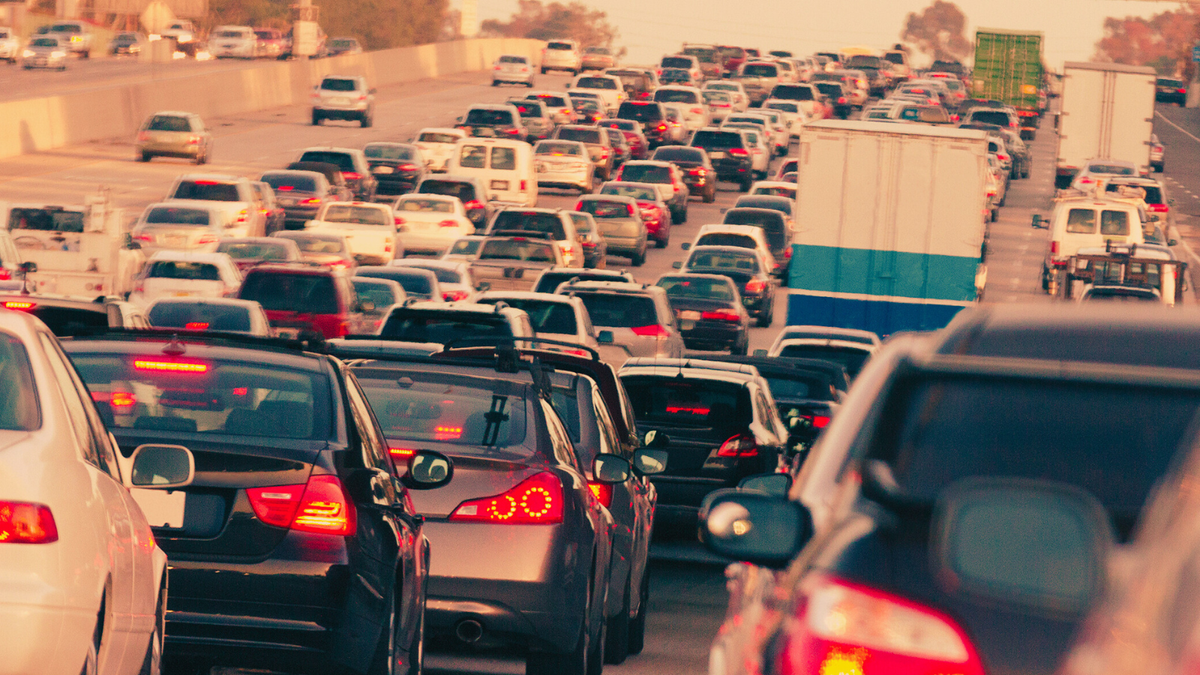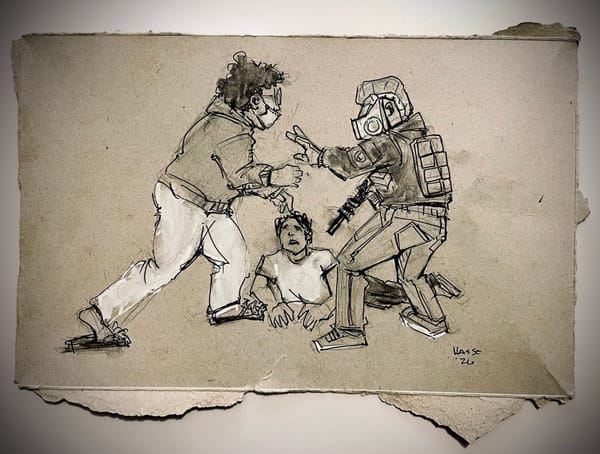Must-Reads and Thoughts on Changing Everything
If we want to save ourselves, we are going to have to change everything.

Your weekly curated list of must-reads is here. But first, there’s a new episode of Movement Memos that I want to share with you. This week, I talked with Lewis Raven Wallace about the parallels between copaganda and the pro-Israel bias of the corporate press.
Lewis and I also talked about the myth of journalistic objectivity, “centrist” attacks on trans people, and mask bans. This was a great conversation and I hope you’ll check it out. If you need a transcript or you would like a look at the episode’s show notes, you can find those here.
Must-Reads
Electoral Setbacks for BJP Won’t Unseat Hindutva Fascism in India by Azeezah Kanji & Sanober Umar. “For those of us outside India, the first obligation of solidarity is working to remove our own states’ culpability for upholding and obfuscating the Hindutva fascist behemoth.”
Biden administration’s border closure plan sparks concerns over humanitarian crisis by Alexandra Martinez. “The policy, which comes amid Biden’s reelection campaign, is strikingly similar to controversial measures taken by former President Donald Trump—including the infamous Muslim Ban.”
Anti-Trans Legislative Risk Assessment Map: June 2024 Edition by Erin Reed. “The passage of extreme anti-transgender bathroom laws and bills denying legal recognition of transgender people in Mississippi and Alabama has placed these states among the harshest for transgender individuals in the United States for adults.”
Scientists Discover Way to Destroy Harmful “Forever Chemicals” in Water Supply by Mike Ludwig. “The technology could also be used to clean industrial wastewater from landfills and certain chemical manufacturing plants as well as brackish groundwater impacted by PFAS pollution.”
‘Slap in the face’: outrage after New York governor halts congestion pricing by Oliver Milman. “In December, at a rally in support of congestion pricing, Hochul said, somewhat ironically, that ‘leaders are called upon to envision a better future, be bold in the implementation and execution, and be undaunted by the opposition’.”
The Real Reason for Louisiana’s New Mifepristone Law by Melissa Gira Grant. “Now anti-abortion lawmakers are searching for ways to expand the web of abortion criminalization from abortion providers to anyone who distributes misoprostol and mifepristone … By threatening informal community networks sharing pills and information, it ensures that people who are seeking an abortion are isolated from support.”
The genocide in Israeli prisons by Qassam Muaddi. “Other depravities have been documented in several other prisons, often gloatingly by Israeli news channels who broadcast scenes of the abuse, including degrading treatment, in what can only be described as snuff films.”
Campus Protests for Palestine: Students Face Criminal Charges, Disciplinary Hearings by Tori Gantz. “Ohio attorney general Dave Yost, a Republican, said protesters may have committed a felony, leaning on a 1950s law that prohibits people from wearing masks (and was originally passed to deter the Ku Klux Klan). University of North Carolina staffers claimed student activists wearing medical masks broke a similar state law, even though the legislation was amended in 2020 to allow a public health exception for mask wearing.”
Parole Plunges in South Carolina as Governor-Appointed Board Issues Denial After Denial by Lauren Gill. “The panel, which Jennings has nicknamed “the rejection board”, has made it increasingly difficult for prisoners to win parole in South Carolina. In 2018, it released roughly four out every 10 people who applied. The odds of release have declined since then: By 2022, the board only approved one out of every 10 petitions. Last year, the board’s grant rate was seven percent.”
Final Thoughts
This week, New York governor Kathy Hochul fucked up big time by nixing congestion pricing. In addition to potentially setting back climate policies around the country, Hochul also created a $1 billion-a-year hole for the Metropolitan Transportation Authority. Hochul has been skewered for this last minute decision, and rightly so. Some say the New York governor has caved to whiny suburbanites, and that may be true. However, I must admit that I am worried about the reception climate-conscious policies will receive from a much broader audience.
In Europe, there has been significant backlash against green policies. Some people are calling it “greenlash.” According to the BBC, higher energy costs have turned many Europeans against the idea of abandoning fossil fuels. Five years ago, young people in Europe had created significant momentum for green reforms, via direct action. Now, farmers are blocking roads to demand an end to green policies that they say are harming their livelihoods.
I am not saying the Hochul is smarter than people realize. Her clownish handling of this debacle should be disqualifying–and if we’re honest, she should have been disqualified from leadership long ago. (This is the same governor who claimed that Black children in the Bronx don't know what the word "computer" means.) What I am saying is that we need to be honest with ourselves about the difficulty of rolling out and sustaining policies that are going to cause financial pain for the sake of the environment. The pandemic has shown us what people are willing to sacrifice for “normalcy,” and as the world burns, I am terrified by the thought of how our self-involved culture intersects with the need for aggressive change.
We know that the wealthiest among us do not want to shift gears to spare us from apocalyptic events. After all, some of these entities have known for decades that we were headed toward mass devastation. Short term gains and profit margins are their primary concerns, not the survival of our communities or humanity as a whole. But what about the rest of us? What are we willing to sacrifice to save endangered species, ecosystems and ourselves from annihilation? The social tendency to avoid the topic of climate catastrophe does not bode well for our collective willingness to make sacrifices. The truth is, we have a whole lot of culture building to do if we want people to confront the realities of climate change, and if we want people’s investment in one another and the planet to outweigh their short term concerns about what makes their own lives harder.
Of course, the problem runs deeper than culture building or how self-sacrificing we are willing to become. Because if the current power dynamics that govern our lives are not upended, everyday people, rather than the wealthiest among us, or institutions like the military, will be expected to bear the brunt of any sacrifices that are demanded for the sake of the planet. In addition to being vastly unfair, this will also prevent us from getting to the heart of the issue, given that corporations and militaries play a larger role in ecocide than we could ever aspire to. Ultimately, capitalism is incompatible with the survival of the planet.
I am not opposed to policies that make life harder for everyday people, if those policies can reduce air pollution and help make life on this planet more sustainable. I favor such moves, and I support congestion pricing. However, I am concerned that such policies will ultimately collapse and prove wholly insufficient, amid an alienated, consumer-driven culture dominated by billionaires. If people’s problems are all their own, and there is no larger social structure working to address the unaffordability of life in a changing world, then people won’t want the world to change.
When our worlds are boiled down to the stuff of our personal budgets and schedules, because our interests have been effectively siloed and there are no larger structures of care to turn to, then not being able to pay our rent or our medical bills may feel like the end of the world, and that personal experience of catastrophe might eclipse the actual apocalypse until it's too late.
If we want to save ourselves, we are going to have to change everything.
Much love,
Kelly




